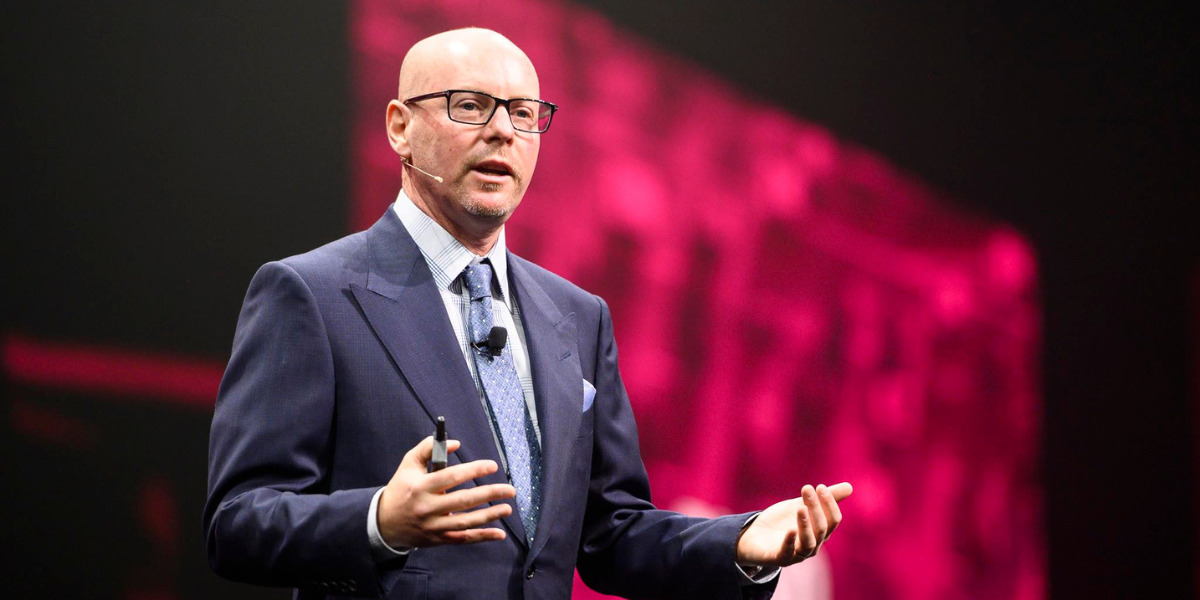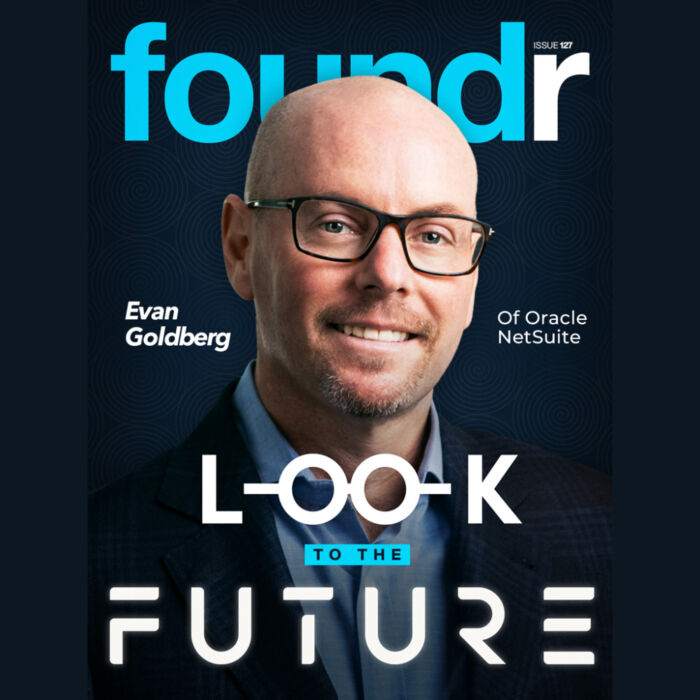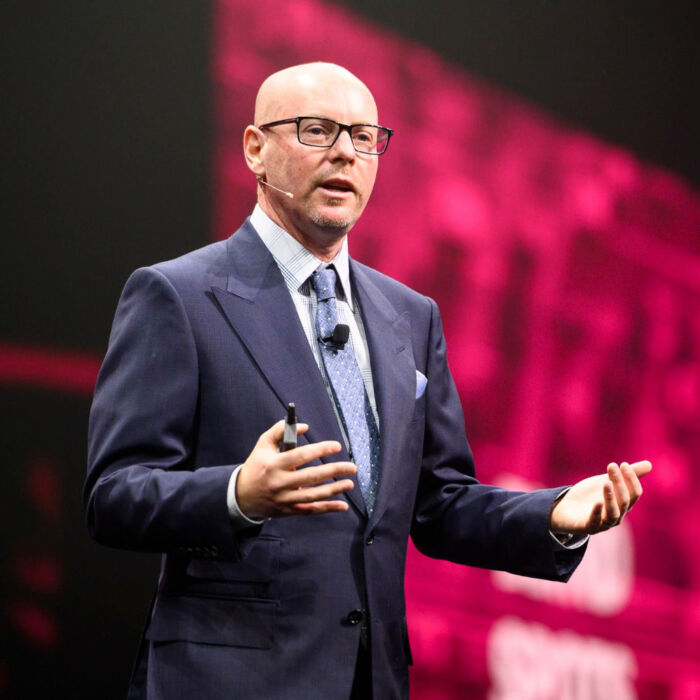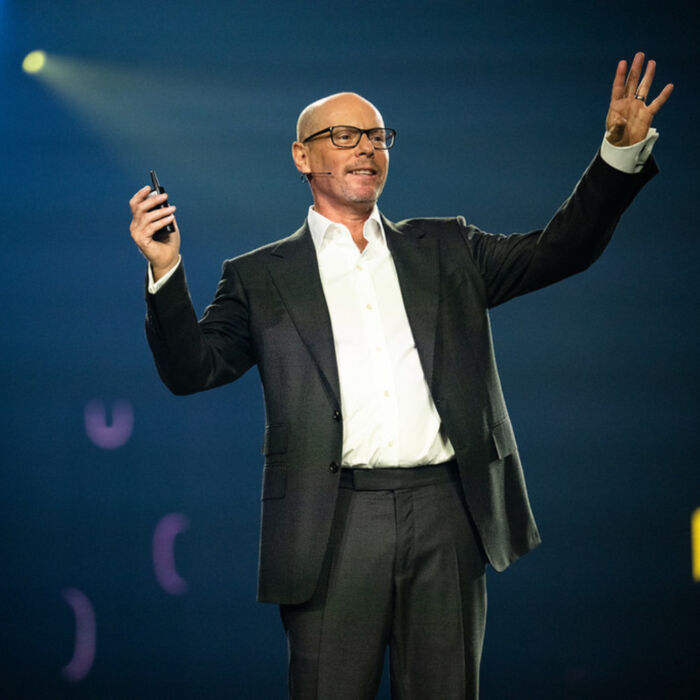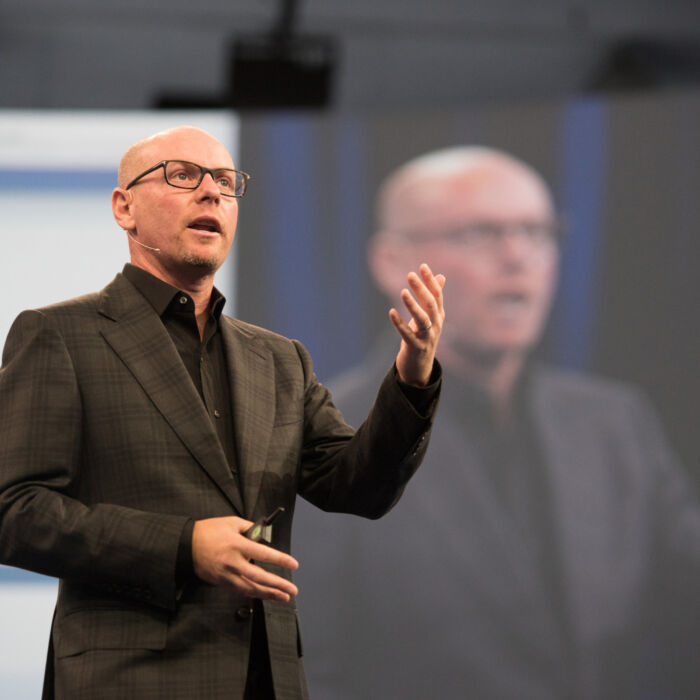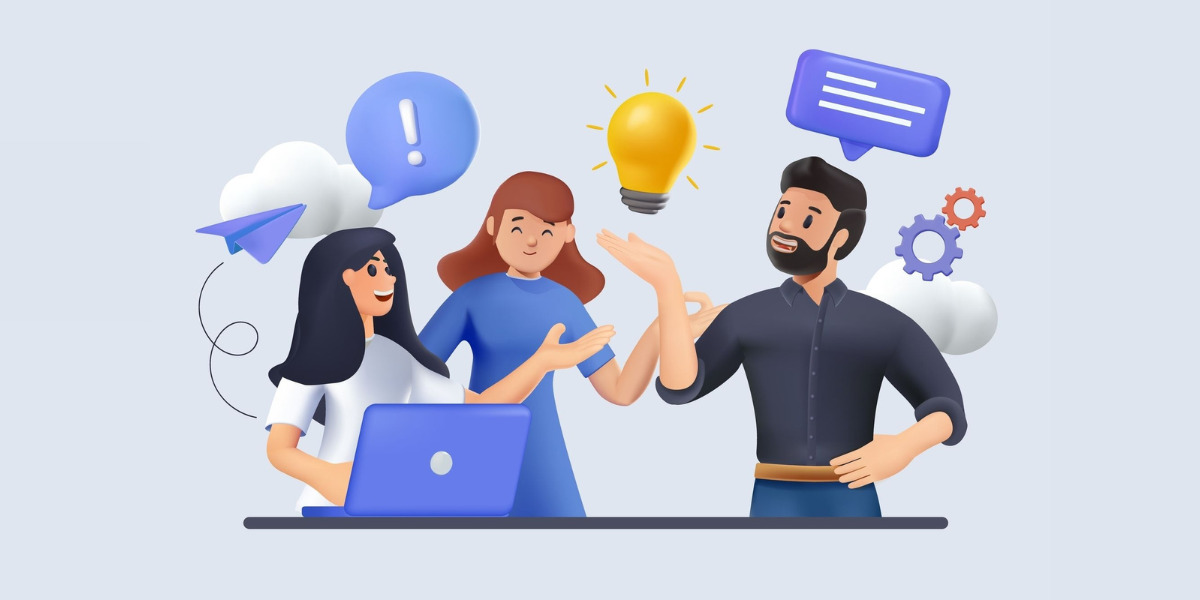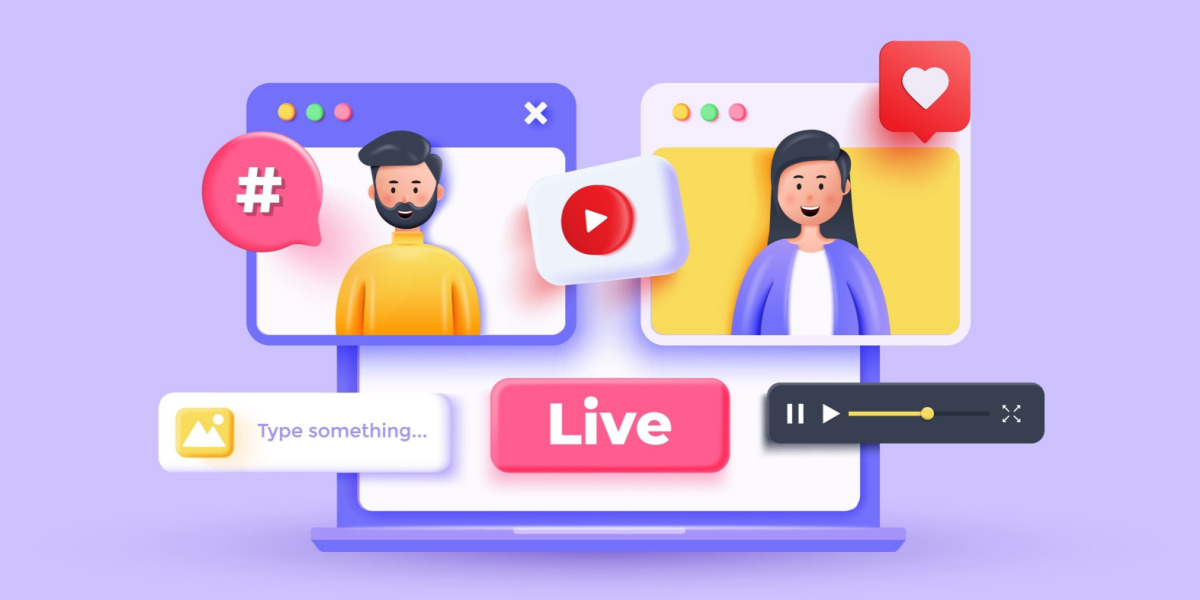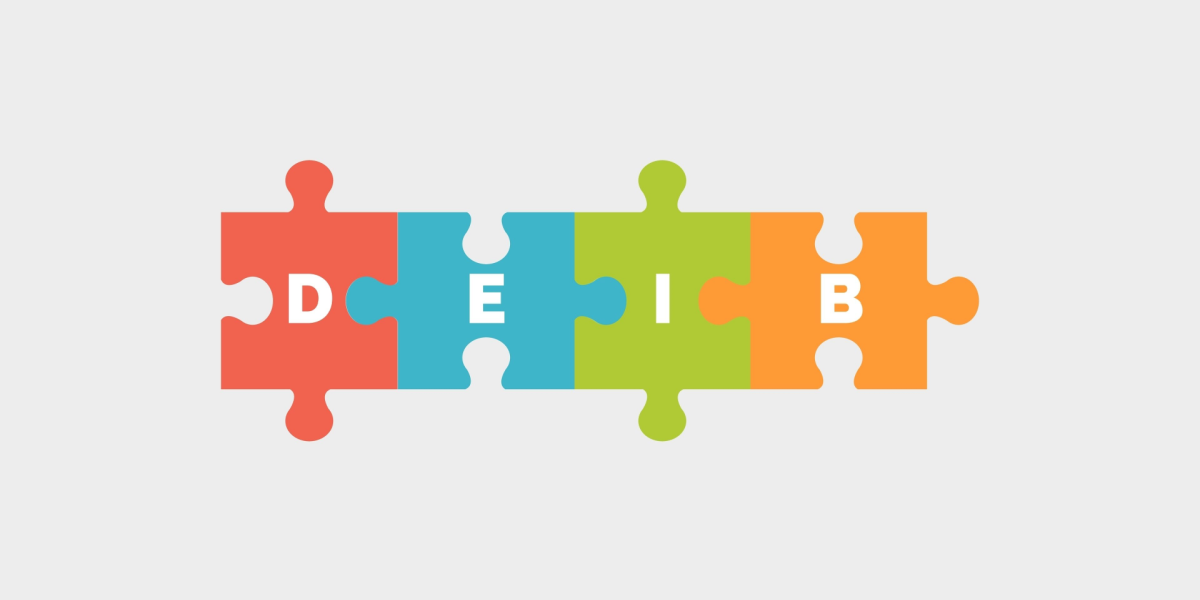Foundr Magazine publishes in-depth interviews with the world’s greatest entrepreneurs. Our articles highlight key takeaways from each month’s issue. We talked with Evan Goldberg, founder of NetSuite and EVP of Oracle NetSuite, about transforming from a tech disruptor to a tech giant. To read more, subscribe to the magazine.
—————
Very few entrepreneurs can say they have played a major role in the success of cloud-based software from its beginning. And very few companies have been around since the internet made its public debut in the mid-1990s.
Evan Goldberg and NetSuite can lay claim to both.
Goldberg is the founder and EVP of NetSuite, now known as Oracle NetSuite. Launched in 1998, NetSuite is considered the first cloud-based software, beating out Salesforce by a few months. Bought by Oracle in 2016, it continues to be one of the leading business operations platforms on the market.
Since 1998
In 1998, Goldberg married, had his first child, moved to a new city, and launched NetSuite, then called NetLedger, from a small office above a hair salon.
“I play a little golf occasionally when I have time—my handicap shows that I don’t have that much time. But my golf ball is a custom golf ball that I have ‘Since 98’ on it because that was a very big year,” he says.
The company was seeded with money from Oracle and Ellison, who was a co-founder. He was also a major collaborator on the first iterations of the product.
“He’d call me up and say, ‘Evan, I think you should have this drop-down where you can change all of the comparison ranges of everything on the dashboard to last year or last quarter versus this quarter,’ et cetera. And my team would dutifully go and program it, and we’d push it out into production. … I’d call Larry back, and I’d say, ‘Log in now; see if you like it.’ So that was a very fun time of collaboration. And some of the stuff that we came up with [is] still in the product today.”
NetLedger was originally a web-based accounting software for small businesses. In 2003, the name changed to NetSuite to reflect the expansion into a suite of software tools that included ERP (enterprise resource planning), CRM (customer relationship management), and ecommerce.
Goldberg now had firsthand experience running a small business and knew what it took to cobble together a suite of software to run it, so expanding NetLedger into NetSuite was a singular focus for him and his team.
“You had to run everything tied together with shoestring and bubble gum and a lot of different applications,” he says. “And you had five different customer lists, and the applications were, of course, running on people’s computers. So if they were using them, you couldn’t get access to them. All those things that we try to overcome, both by making the application available on the internet and making it be one system.”
In 2007, the company went public on the New York Stock Exchange.
Fast-forward nine years, and Oracle bought NetSuite for $9.3 billion, coming full circle back to the company that funded the startup and provided many of its original employees.
A Lifetime of Business Insights
In the 25 years since that first office above the hair salon, Goldberg has had a front-row seat to the meteoric growth of the internet and cloud-based computing. He watched the dot-com bubble pop and rebound and the dawn of ecommerce. And he watched cloud computing come to the rescue during Covid-19 lockdowns.
Through it all, he and his company not only survived but thrived. And now, he has a plethora of insights to share.
Learning From Customers
As a B2B tech business, NetSuite has always been uniquely positioned to collaborate with its customers and apply what it’s learned to its own practices.
“That’s definitely one of the perks of the job is just to talk to lots of other entrepreneurs and hear about their journeys,” Goldberg says.
For example, NetSuite has worked with its cybersecurity customers to boost its secure networks.
But beyond a better product, the company collaborated with customers to provide a better work culture for the NetSuite team.
“I talk to entrepreneurs and CEOs and founders about how they maintain their culture, and we share that information,” he says.
In fact, the same person responsible for employee engagement is also responsible for user conferences, where NetSuite can get insights into how other companies maintain their company culture.
“And I hope they do the same back from us when they go to NetSuite World and see how we run our user conference,” Goldberg says. “I hope they go and take that and some of the great things they see there and use it in their user conference.”
Staying Ahead of the Competition
Much of Goldberg’s job at Oracle NetSuite currently revolves around ensuring it remains the disruptor in its market rather than, as he puts it, the “disruptee.”
“You have to be cognizant of what your competition is doing, but you don’t want to look so carefully,” he says.“You want to be creative, and you want to have your own ideas. And that’s ultimately what’s going to make you succeed.”
Instead, says Goldberg, it’s critical to focus on what makes you different and on the projects that will keep improving on those differentiators.
Focusing on Existing Customers in a Recession
While the buzz around a future recession has quieted somewhat, plenty of entrepreneurs still keep a close eye on the economy.
Goldberg, of course, has weathered one or two himself, and he approached them as an opportunity rather than an obstacle for growth.
“You know that saying ‘never let a crisis go to waste?’ You make some great changes under necessity. There’s a reason that the cliche ‘necessity is the mother of invention’ exists.”
In the 2008 recession, for example, he and his team realized they hadn’t been putting enough focus on existing customers.
“It’s not as sexy as getting new customers and getting that increased customer count,” he says. “But during those times where new customers are harder to find, that’s when you can double down. And we really did double down on looking at how we could help our existing customers use the product more effectively, help them get through their trials and tribulations of the economic crisis, and come out the other end.”
Even after the economy began to recover, NetSuite kept that focus on existing customers, and those best practices continue today.
AI
In 1998, Goldberg was on the cutting edge of tech with the dawn of cloud computing. Now, he finds himself there again with artificial intelligence.
And while he and his team are looking at the applications of AI within their tech, they are approaching it with a critical eye.
“I mean, basically, almost everything that humans engage in will be able to benefit potentially by this new technology,” Goldberg says. “Exactly how is still really unclear. So, of course, we’re thinking about it at NetSuite, and every tech business is. The hype machine is on overdrive right now in terms of what people say they’re going to do and what they’re going to release.”
Goldberg still believes that incremental improvements over time are the path to success, but he understands having to make a few big bets occasionally, too.
“I think that it’s really a balance in how you approach AI,” he says.
